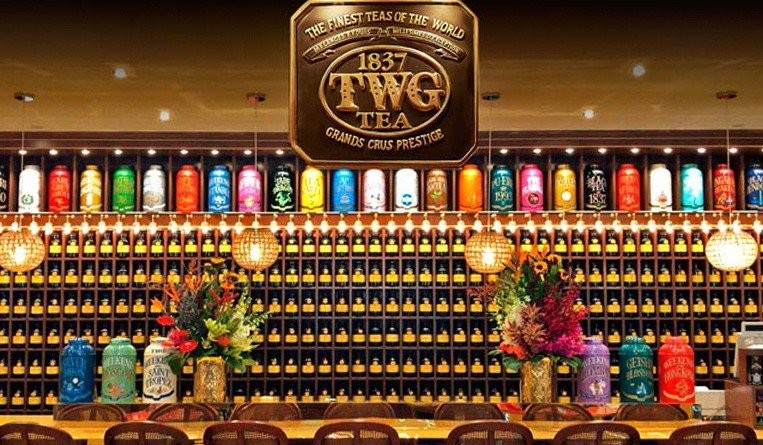Singapore trademark oppositions: Confidentiali(tea) of evidence adduced
14 January 2020

The 67th United States Secretary of State, Hillary Diane Rodham Clinton once stated: “In almost every profession – whether it’s law or journalism, finance or medicine or academia or running a small business – people rely on confidential communications to do their jobs. We count on the space of trust that confidentiality provides. When someone breaches that trust, we are all worse off for it.” Whilst this may sound ironic coming from someone who purportedly used a private email server for official communication, this excerpt perhaps hits the nail on its head when it comes to the core principles of confidentiality.
In the context of trademarks, it is relatively common for parties to adduce sales and marketing figures (which are, more often than not, deemed confidential) as part of their evidence in support of their case in opposition and invalidation proceedings. Should the confidentiality of the said sales and marketing figures be safeguarded, and if in the affirmative, under what circumstances? These were some of the interesting issues which arose (rather surprisingly, for the first time before the Registrar of Trade Marks, Intellectual Property Office of Singapore (IPOS), in an (interlocutory) application for confidentiality safeguards by TWG Tea Company (the applicant) and objection thereto by T2 Singapore Pte. Ltd. & Tea Too (the opponent). The case is available at [2019] SGIPOS 9.
In this case, the applicant sought to register the trademarks Singapore Breakfast, New York Breakfast, London Breakfast and Caravan in relation to tea and other goods in Class 30. The opponent filed an opposition against the said application, on inter alia the following grounds: the marks are devoid of any distinctive character [under Section 7(1)(b) of the Trade Marks Act (Cap. 332)] and/ or the marks are descriptive of the goods in question [under Section 7(1)(c) of the act]. The applicant argued that, in any event, the marks have “in fact acquired a distinctive character as a result of the use made of it” and, pursuant to Section 7(2) of the act, the marks should “not be refused registration by virtue of [Section 7(1)(b) or (c) of the act].”
In support, the applicant sought to adduce evidence of sales and marketing figures, which the applicant asserted constitute confidential information. Accordingly, prior to disclosing the information to the opponent, the applicant sought various confidentiality safeguards. The opponent refused to provide the said confidentiality undertaking. Consequently, the applicant was constrained to apply to the registrar for the said confidentiality safeguards to be imposed on the opponent.
In response to the fundamental question – i.e., is there a difference in a case where a party is seeking confidentiality protection over information which it voluntarily puts forward in support of its case (as here), and a situation where it is compelled to provide the information – the registrar answered in the affirmative, whilst stating that a person should generally not be permitted to have his cake and eat it too! Furthermore, the registrar observed that it is unfair to impose confidentiality obligations on a party in respect of information which it never asked for in the first place, and that confidentiality undertakings should not be imposed in such cases. The registrar, however, clarified that this does not mean that confidentiality safeguards should never be imposed (although the case for imposing such safeguards would need to be compelling). The registrar then ventured to enlist some of the factors which ought to be considered, including the following:
-
The importance of the information to the issues in dispute – the more critical the information, the less likely it should be kept private; in accordance with the principle of open justice, it is important to be able to ascertain the basis of a court or tribunal’s decision;
-
The degree to which the information is confidential – if the same type of information is available through publicly available sources (e.g. if the party providing the confidential information is publicly-listed, some of the information may be publicly available; some of the information may be available through industry or trade publications);
-
How current the information is – in most trademark disputes before IPOS, the tribunal is concerned with the status of matters at the date of application for registration of the mark in dispute; this could be a few years before the date when the information is provided; the more “historic” the information, the less likely that it will still be commercially valuable;
-
Whether the parties are competitors – if so, it would be more important to have confidentiality safeguards; but this cannot be decisive since the parties in such proceedings will in many cases be competitors;
-
The extent of prejudice to a party should the confidential information be disclosed to its competitor – this will depend very much on the facts of each individual case; and
-
The stage of the proceedings – as the matter advances towards a hearing, it will become progressively more important for a party to be fully apprised of the case it has to answer, and it is plausible that more individuals within that party might need access to the confidential information to enable meaningful discussions as to the conduct of the case, including whether the possibility of a settlement should be explored.
Taking into account the said factors, and applying it to the factual matrix of this case whilst balancing the various competing interests, the registrar decided that the confidential information, and in particular the applicant’s sales figures, should be protected by appropriate confidentiality safeguards at this stage.
Be that as it may, with respect to the applicant’s request for a direction that the opponent ought to provide an indemnity against “any loss, damage, liability, claims, demands, fees, costs and expenses (including legal and professional costs and expenses)” incurred by the applicant arising from any breach of the undertaking by the opponent, the registrar ruled as follows: The applicant’s requests for an indemnity from the opponent, and consent by the opponent to injunctive relief in the event of any threatened or actual disclosure of the confidential information, go too far and cannot be granted. The registrar ventured to observe that bearing in mind the fact that the opponent has not even asked for the confidential information in the first place, it is all the more important that such onerous obligations should not be imposed on the opponent.








